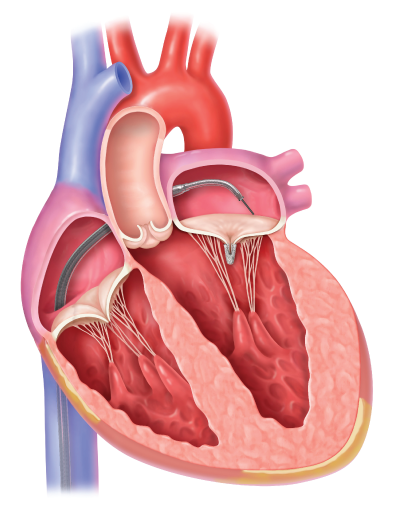Updated March 15, 2023
Mitral transcatheter edge-to-edge repair (TEER) is a minimally invasive procedure for treating mitral valve regurgitation, a condition in which the valve between the heart's left chambers doesn't close properly. In a healthy heart, valves open and shut tightly during each heartbeat, controlling blood flow through the heart and out to the rest of the body. When the mitral valve doesn't close well, blood leaks backward and the heart is forced to work harder. Pressure may build in the lungs, and people may feel tired or short of breath.
Without treatment, the regurgitation (backflow) can become more severe over time, with new or worsening symptoms. In TEER, using either the Abbott MitraClip or Pascal Precision system, a small device is implanted in the valve to help it close more fully and restore normal blood flow. These devices work by pulling the valve's flaps into a more natural alignment. They're inserted through an artery by means of a long, thin tube called a catheter, so the procedure requires only a small incision.
TEER can help the heart function better, which can relieve shortness of breath, chest pain and other symptoms, and improve quality of life. Patients commonly feel less anxious, and their risk of future hospitalization for heart failure is reduced.











